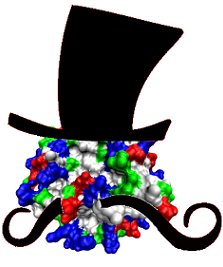The NK Linked Lecture: DNA and the Brain
A lecture given by Dr. James Watson that was made possible by Authors@Google series. Dr. Watson comments on his role in the discovery of the DNA double helix and reports on some of the research being conducted at Cold Springs Harbor, of which he is The Chancellor (I assume this position is equivalent to the director).
Most notable quote of the lecture: " This century will see the coming together of psychology and biology in the way that the last century was the coming together of chemistry and biology."
Dr. Watson's lecture focuses on the genetic roots of autism. Autism being a neurological disorder, which the disease manifests via spectrum as opposed to "present/not present". Looking for phenotypic patterns present in the progenitors of autistic children, Dr. Watson comments on research where subjective mental state assessments have been gathered for autistic progenitors and then compared to the prevalence of autistic child births between these individuals. An example being that the average IQ for autistic progenitors is 112, when the over-all average is 100.
Here's where it gets tricky though. Another researcher, Simon Baron-Cohen, came up with the categories of the female mind and male mind (Which in my opinion is a very poor choice of names for these categories). Where the male mind is defined as a systemizer, an individual that is mathematics based, logical and the female mind is defined as an empathizer, an individual that is good at connecting with other individuals. I believe that the terms male and female mind need to go; just use empathizer and systemizer instead. This choice of nomenclature will just inhibit these findings by miring them in unnecessary politically correct battles. Aside from the poor nomenclature, Dr. Watson states, that two individuals who are assessed as systemizers (male-mind oriented) are more likely to have an autistic child.
This appears to make sense, that individuals with a phenotype to systemize as opposed to empathizing will produce offspring more prone to systemizing, assuming that empathizer-systemizer spectrum holds true. But what genetic or neurological reasons are there for these parameters to be mutually exclusive? I believe that I have encountered many people who I would categorize as both strong systemizers and empathizers. Furthermore, according to this theory, that autism can be described as an individual at the extreme systemizer end of the empathizer-systemizer spectrum,then there should also be examples of neurological disorders on the opposite end of this spectrum.
Although I found this lecture engaging, I believe that I need to read more of Baron-Cohen's research to fully understand his position.
Well, enjoy the presentation.
Most notable quote of the lecture: " This century will see the coming together of psychology and biology in the way that the last century was the coming together of chemistry and biology."
Dr. Watson's lecture focuses on the genetic roots of autism. Autism being a neurological disorder, which the disease manifests via spectrum as opposed to "present/not present". Looking for phenotypic patterns present in the progenitors of autistic children, Dr. Watson comments on research where subjective mental state assessments have been gathered for autistic progenitors and then compared to the prevalence of autistic child births between these individuals. An example being that the average IQ for autistic progenitors is 112, when the over-all average is 100.
Here's where it gets tricky though. Another researcher, Simon Baron-Cohen, came up with the categories of the female mind and male mind (Which in my opinion is a very poor choice of names for these categories). Where the male mind is defined as a systemizer, an individual that is mathematics based, logical and the female mind is defined as an empathizer, an individual that is good at connecting with other individuals. I believe that the terms male and female mind need to go; just use empathizer and systemizer instead. This choice of nomenclature will just inhibit these findings by miring them in unnecessary politically correct battles. Aside from the poor nomenclature, Dr. Watson states, that two individuals who are assessed as systemizers (male-mind oriented) are more likely to have an autistic child.
This appears to make sense, that individuals with a phenotype to systemize as opposed to empathizing will produce offspring more prone to systemizing, assuming that empathizer-systemizer spectrum holds true. But what genetic or neurological reasons are there for these parameters to be mutually exclusive? I believe that I have encountered many people who I would categorize as both strong systemizers and empathizers. Furthermore, according to this theory, that autism can be described as an individual at the extreme systemizer end of the empathizer-systemizer spectrum,then there should also be examples of neurological disorders on the opposite end of this spectrum.
Although I found this lecture engaging, I believe that I need to read more of Baron-Cohen's research to fully understand his position.
Well, enjoy the presentation.



1 comment:
What a great web log. I spend hours on the net reading blogs, about tons of various subjects. I have to first of all give praise to whoever created your theme and second of all to you for writing what i can only describe as an fabulous article. I honestly believe there is a skill to writing articles that only very few posses and honestly you got it. The combining of demonstrative and upper-class content is by all odds super rare with the astronomic amount of blogs on the cyberspace.
Post a Comment